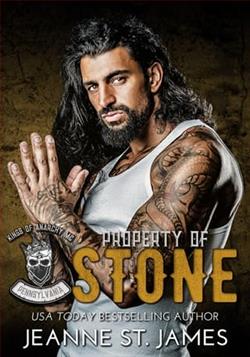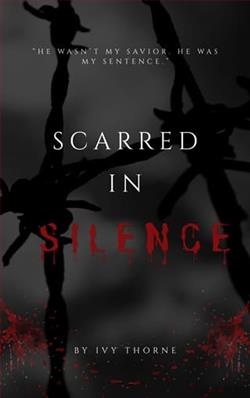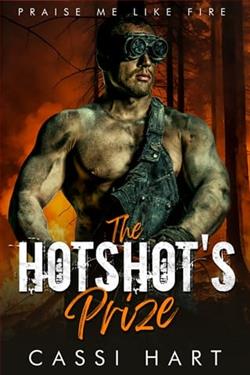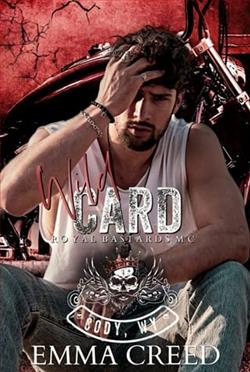Page 2 of The Boyfriend Boycott
I follow close on his heels, shutting the heavy wooden front door behind me before veering away from Hudson and heading over to my bike. I say bike, but it’s got 120 horsepower engine and cost me a pretty penny, but it was worth every single one. I’llnever get tired of the thrill that ripples through me when I turn it on. It practically roars to life beneath me, the rumble of the engine moving through me when I turn the key.
Spring has graced the mountains, and although the temperature has only just started warming up, it feels practically balmy after the deep freeze we’ve had for the last six months. This weather makes me giddy. It’s motorcycle season, and any day that I get to ride is a good day. I feel like a kid who has just been let out for recess.
I glance over my shoulder at the drive that winds through the large expanse of property. I’ve lived here ever since Dad moved out of our childhood home and sold it to me three years ago. That was the year before he passed. He’d been living in the cabin to be close to the clinic, and the house became too difficult to manage with his Parkinson’s. The bar took off after I bought it and started hosting trivia nights and other social events, and with Mason fresh out of residency and under a load of student debt, and Hudson and Jett still in their early twenties, I was the only one with the money to buy the place when Dad was ready to sell.
Since then, I’ve renovated almost every aspect to the point of it being hardly recognizable from the dated 1980s split-level we grew up in. It’s much moremenow, with moody, masculine paint colours, dark wood and stone, but still true to the era in a mid-century modern style. I also left some evidence of it once being our family home, like the tire swing about halfway down the drive that Dad hung up for us—or rather, hung up for Jett who begged and begged to the point that every single one of the Landrys was annoyed. We used it for one summer before we grew bored of it.
Leaning into the turn at the end of the long, winding driveway, I pull out onto the road and start the fifteen-minute drive into town. The house is close, but not close enough tofeel suffocated by the goings-on of small-town life—the chitter-chatter and gossip that plagues every town with a population of just over 10,000. I like it that way. A bit of distance is healthy, safe. It means that I can avoid any drama, maintain my reputation as easy-going Grady. Unproblematic, well-liked, reliable when you need him but doesn’t get in the way.
My bike slows as I down-shift, the rumble of the engine lowering to a soft purr as I pull up out front of the Whisky Jack. Normally, I would park out back, in the alley. But I’m not planning on staying long. I survey the front of the corner building. The worn wood siding is a little worse for wear, but it gives the bar a rustic, lived-in feel.
Something grabs my attention out of the corner of my eye—a bright red and whiteFor Leasesign in the window of the storefront next door. My chest tightens when I register what it means. The storefront was occupied by the Parks for as long as I can remember. They ran a Korean restaurant that served the most mouthwatering bibimbap and bulgogi. The same recipe that they brought over in freezer-safe containers in quantities enough to feed a small army after Mom passed. That was over twenty years ago now, but what the Parks did for us will stay with me forever. My brothers and I survived off their food for weeks after her funeral. Yet, the traditional Korean dishes never bring back bad memories, they remind me of how the town came together and took care of us. They became the family we needed without even so much as a second of hesitation. Now, they’re closing the restaurant. I rub my hand on my sternum, trying to soothe the ache I feel there, thinking about the last time I ate one of their delicious meals not knowing that it would be the last time. I didn’t savour it enough, then.
I walk up to the dark windows and peer inside, cupping my hands around my eyes. The restaurant is empty. I wonder, withanother pang of sadness, if the Parks have already left town without saying goodbye.
I pivot back towards my own establishment and see the patio full of customers enjoying the spring sunshine that is still warm in the early evening. People are chatting happily in the shade of the blue umbrellas, and a few of them offer me a wave as I pass them on the sidewalk and follow the path to the front doors. The doors creak, the heavy wood groaning as I pull it open by the wrought iron handle. It’s even busier inside and most of the tables are full, including a big group of ladies who frequent the bar once a month for their book club.
Finn is scurrying around behind the bar, hurriedly pouring drinks for the large party, and I weave my way through the tables to go and help. I don’t ask, I just pick up the order ticket from the counter and start pouring.
He looks up and gives me an appreciative grin before picking up the first tray of glasses and taking them over to the table. I finish pouring the last of the drinks and follow him over to the group of middle-aged women who are busy gushing over how hot the hero of their book is. If he’s the guy that’s featured on the cover, I would have to agree.
“Woah, ladies.” I bend down in between two of them and set their drinks down on the table. “Is this the new book boyfriend?” I wink at one of the women and watch a flush spread over her cheeks. “Looks like I have some competition.”
One of them smacks me playfully on the arm as I set her martini down in front of her.
“Oh Grady, you know there’s no such thing as competing with you,” she says with a flirtatious lilt.
“Don’t say that too loud, Doris. I don’t want to have to take on that hunk of a husband of yours.” I pat her shoulder as I leave the table and make my way back to the bar. Finn is leaning against the counter, finally catching a moment to breathe. Thebar is like this; sometimes it’s dead for hours, and then all of a sudden a rush of people comes, making it tough to catch up.
“Are you sure you’re okay to handle the bar tonight? I don’t want you to drown here,” I ask.
“It’s all good. Enjoy your barbecue,” he answers. Finn has been my right-hand man at the Whisky Jack for the last month or so since he moved back to Heartwood. We’ve been friends since high school, until he went away to play hockey. He’s a good guy, reliable. You need reliable when you’re a business owner. Having Finn around means that I get to take a step back from the bar now and spend more time with my family.
“I’ve got my phone on me, so just text me if you need anything, alright?” Finn nods to confirm he knows I’m not throwing him to the wolves. Still, it’s his first time closing on his own, and I worry that he’ll be overwhelmed. “I mean it, anything you need, I’m here.” He nods again and waves me off.
“I’ll be fine, dude. But thanks, I’ll text if anything goes sideways.”
I turn to head out, but then I remember why I came here in the first place and dig the key to the float safe out of my pocket. Finn takes it from me with a nod of thanks.
“Hey, do you know anything about the Parks closing the restaurant?” I ask. In my peripheral vision I notice someone at the bar turn their attention to our conversation.
“They’re leaving town. Guess they couldn’t hack the pressure of being business owners,” Carter Bouchard pipes up. As I recall, he was voted number one douchebag of Heartwood High’s graduating class of ’09. My graduating year. That is, I voted him number one douchebag in my heart. He’s clearly been eavesdropping from where he’s seated with his obnoxious, self-important buddies, sticking his nose where it doesn’t belong.
“Yo, shut the fuck up, Carter,” Finn snaps back. I make a mental note to give Finn a raise. I’ve been telling Carter to “shutthe fuck up” since the tenth grade when he decided to start bullying Hudson. “They’re leaving because Mr. Park can’t look after the place anymore. They’re moving to the city to go into an assisted living facility that’s close to their kids. Have a little respect.”
Carter lets out an indignant scoff. His almost black, gelled hair doesn’t move an inch as he moves his head.
“I don’t care why they’re leaving if it means that building is up for grabs. It would look better as a brand spankin’ new Urban Ember, don’t you think? Class this place up a little,” Carter says. It takes me a second, but I recognize the name as a popular chain of upscale restaurants. They have a few locations in Calgary and Vancouver, if I’m not mistaken.
“Good luck with that.” I scoff. “There are laws in place against chains opening up shop in Heartwood.” Laws that help keep the Whisky Jack afloat and have allowed so many other businesses to thrive in Heartwood. Those laws have preserved the charm of the town and prevented it from becoming the next big tourist destination.
“Not for long, if I can help it. That rule is so outdated. Some crusty old mayor probably put it in place because they hate change.” My breathing becomes tighter as I consider the implications of Carter’s words. There’s a new mayor in office now, and Jodi Price’s entire campaign was built on the notion of bringing Heartwood into the future. Though, she conveniently left out details about how she would accomplish it. I didn’t think that sacrificing the local economy was going to be part of her plan when I voted for her. “I’m sure the council will be very interested to see how much money I can bring to the town at the next meeting,” Carter says. He winks at me like he’s explaining how politics works to a child. Fuck him. People come to Heartwood for a reprieve from the city, and that could be lost if Carter manages to convince the council to overturn the law.
“Do you realize what opening that door would do to other businesses in Heartwood? It wouldn’t just be the Parks closing up shop,” I argue, but I’m starting to realize there’s probably no point in engaging with Carter.
“Not my problem,” he says, standing up and smacking a fifty-dollar bill down on the bar. Far more than his one beer cost him.Flashy.It’s gross. “And I have a feeling Mayor Price will agree. Especially when she sees the fat cheque I’m going to cut her as a donation to her next election campaign. Anyhoo, later fellas.”
He gets up and stalks out through the large wooden double doors, the daylight illuminating dust motes floating in the air as it opens and then shuts behind him. I’m relieved he’s gone, but it also irks me that he got the last word.















